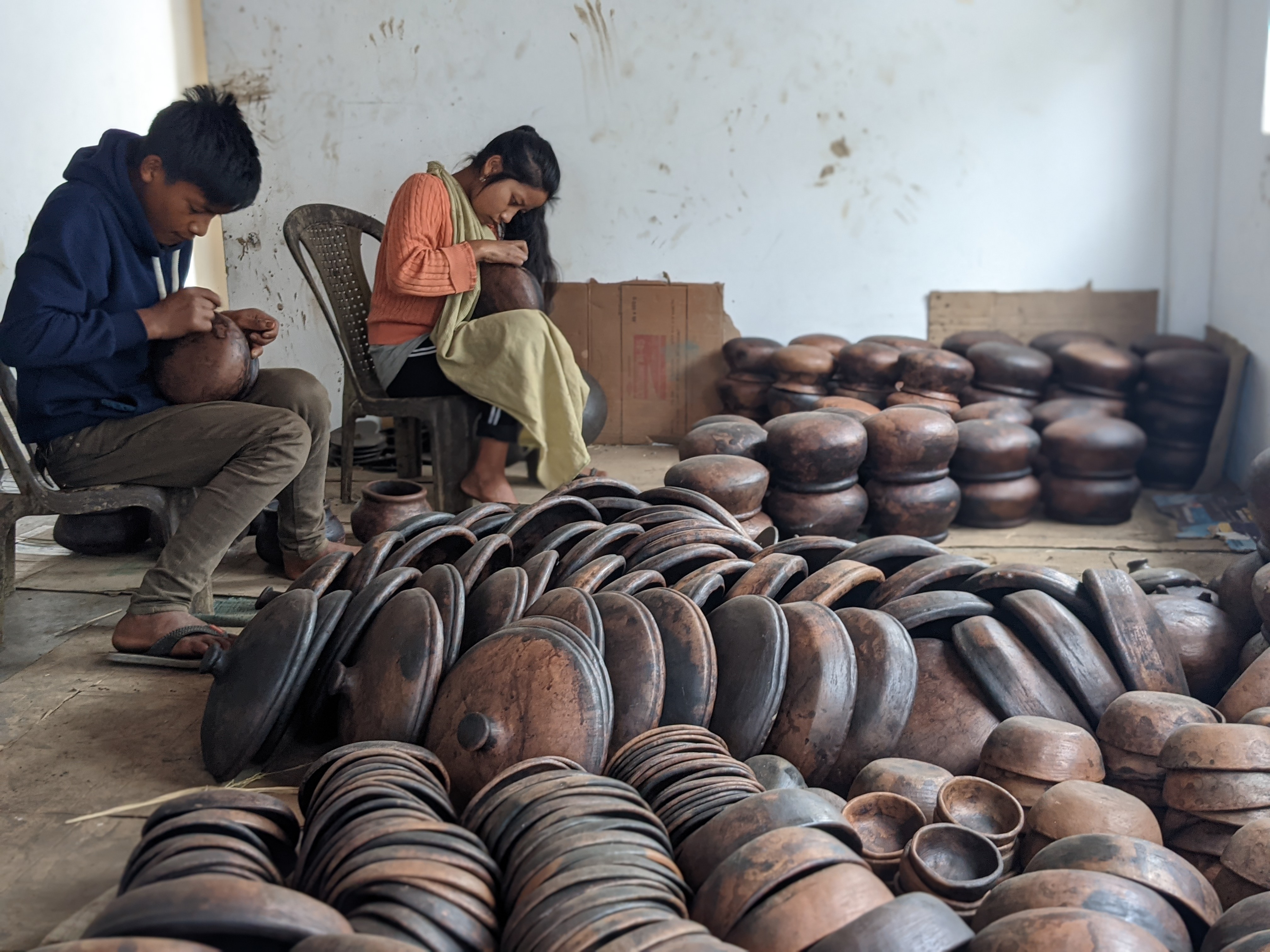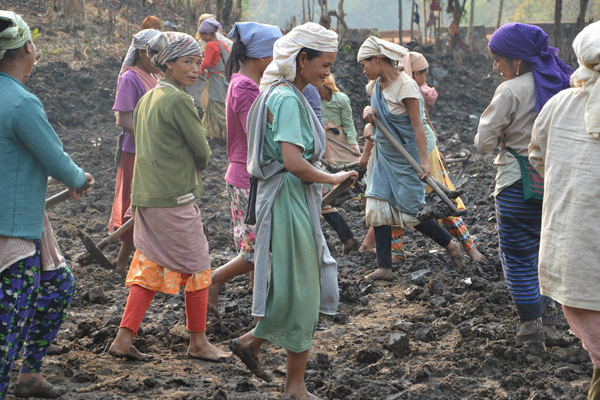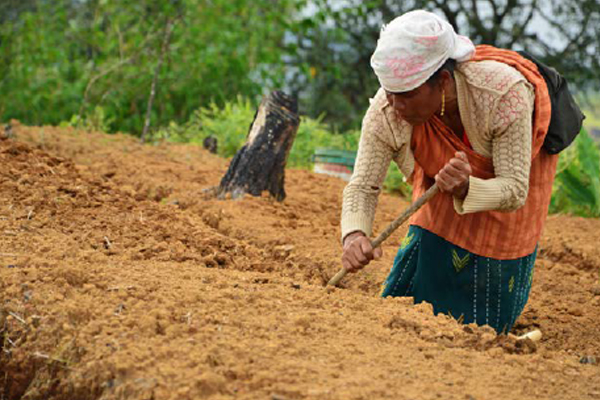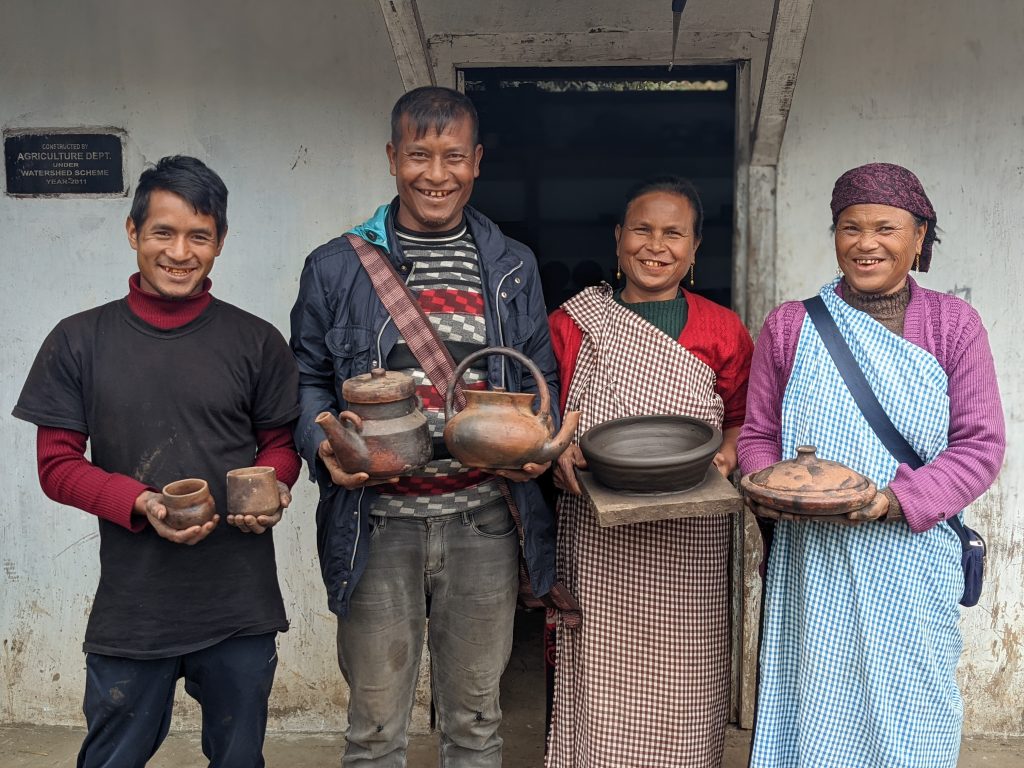 Traditional Knowledge (TK) is synonymous with the identity, value, and culture of indigenous communities across the world. Its preservation is of supreme importance given how TK has proven to be essential in harmonizing various developmental processes for the communities. The recognition for its preservation is well-established and universal. A multilateral treaty was agreed upon by the participating countries during the Convention on Biological Diversity held in Rio De Janeiro in 1992 for “the conservation of biological diversity, the sustainable use of its components, and the fair and equitable sharing of the benefits arising out of the utilization of genetic resources.” As of 2016, the agreement has been formally endorsed by 196 countries to reinforce the importance of TK and its role in sustainable development and livelihoods.
Traditional Knowledge (TK) is synonymous with the identity, value, and culture of indigenous communities across the world. Its preservation is of supreme importance given how TK has proven to be essential in harmonizing various developmental processes for the communities. The recognition for its preservation is well-established and universal. A multilateral treaty was agreed upon by the participating countries during the Convention on Biological Diversity held in Rio De Janeiro in 1992 for “the conservation of biological diversity, the sustainable use of its components, and the fair and equitable sharing of the benefits arising out of the utilization of genetic resources.” As of 2016, the agreement has been formally endorsed by 196 countries to reinforce the importance of TK and its role in sustainable development and livelihoods.
Meghalaya also possesses diverse and invaluable TK. The state’s indigenous citizens have for ages lived in close proximity to nature and the environment, and in most cases, if not always, they offer insightful solutions on how to best preserve their homes given they are the sole custodians of these practices. There are, of course, a wide variety of non-development-related TK that are equally important sources of the identity of these communities and expressions of their unique individuality and tradition.
Black clay pottery in West Jaintia Hills is one such example.
In the State, there is no clear and definitive origin about the nascence of clay pottery. Only a few references can be found. Citations[i] include Philip RTG Gordon’s “The Khasis” which mentions that pottery is a customary activity of the locals of Tyrshang and Larnai villages. To this day, these products represent rich TK at its best, nurtured and verbally passed down from generation to generation.
Tyrshang in Thadlaskein Block is located 18 kilometers from District Headquarters, Jowai, and has 294 households. The population is largely dependent on agriculture and its allied activities for sustaining livelihoods, but a small segment is still actively engaged in clay pottery.
Tyrshang potters produce about 40 varieties. These include cookware, containers, tableware, and decorative items. The most sought-after item is the khiew ranei or kchu lyrnai, a black terracotta pottery used for preparing the popular local delicacies such as pumaloi and putharo. These pots are also biodegradable and are made by pounding, mixing, molding, and shaping the clay. The clay, however, can only be used with the prior permission of the clan chieftain or the ‘Doloi’ and cannot, at all costs, be sold.
Materials for making the black clay pots are only available from Sung Valley, an area that belongs to the Doloi of the Nartiang Elaka. Procurement is not customarily made in cash. Instead, the Doloi will gift the clay annually as part of Durga Pooja festivities. The materials include black clay or khyndaw iong and green serpentine stones or khyndaw khluit. Other materials include cow’s skin for pounding, a rectangular-shaped wooden board, a triangular-shaped beater, and an iron-like plate for polishing the products.
As part of an initiative to support the State’s rural artisans with training, capacity building, skill development, and market connect, among others, the Meghalaya Basin Management Agency (MBMA) through its Enterprise Facilitation Centre (EFC) in Thadlaskein was able to facilitate the scaling up of the activity. In 2016, MBMA helped form the Tyrshang Lurshai Cooperative Society comprising 19 potters.
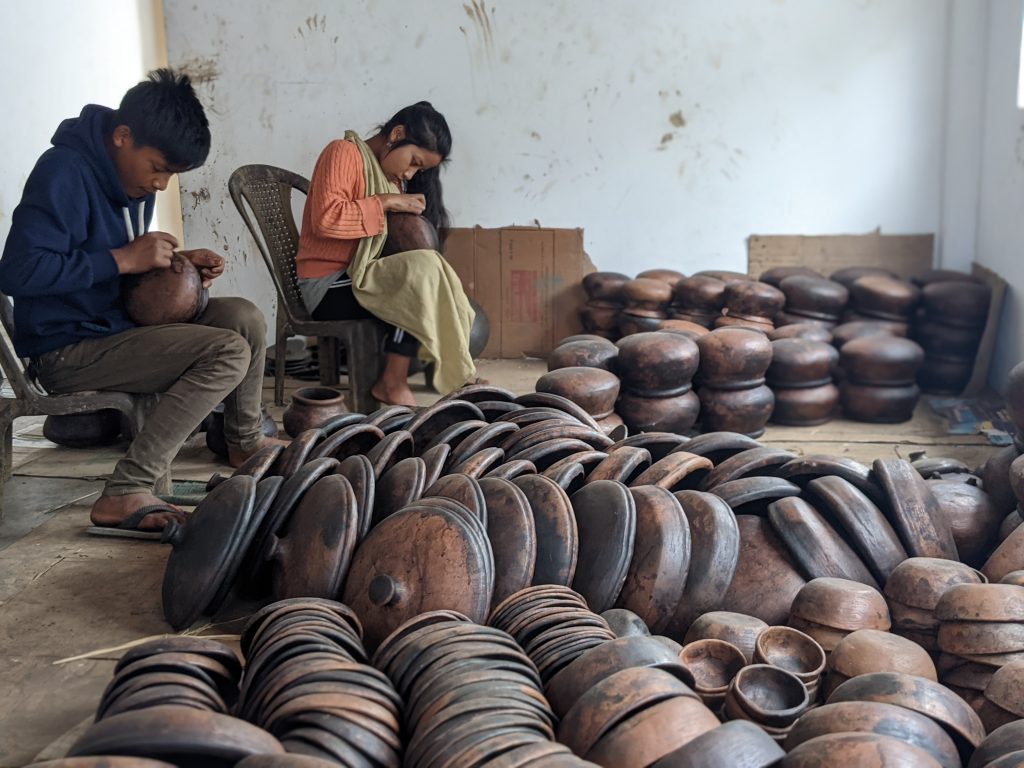
MBMA supported with market and credit linkages after recognizing that these products had every potential to score big in niche international markets. The State’s Planning Department also facilitated the construction of a working shed that has three storage rooms, a workshop, a room for storing the molds, one for the firing process and glazing of the clay pots, and a big-sized oven.
The workload is shared to cater to bulk orders by buyers from Jowai and Ummulong locally, Mumbai and Delhi nationally, and London, Paris, and Rome internationally. Although initially adamant that their old ways trumped technology, the members soon became receptive to employing modern methods of pottery making after seeing the results.
The Society has had many firms, institutions, and interested parties visit to witness their methods for cross-learning and understanding of the beneficial properties of cooking in these pots. The slow-cooking nature makes the food tastier because it naturally retains nutrients, while it can also stay warm for longer periods. A meal would require less oil and seasoning because of the moisture that stays trapped within the confinement, while the aromatics are much more discernible in these pots.
The Tyrshang Lurshai Cooperative Society has been a shining example of how to manage and preserve TK. But in the overall Meghalaya context, it has been observed that the practice of transmitting knowledge from one generation to the next is waning and is in danger of becoming a tradition of the past. Issues[ii] include population growth, the quest for unsustainable developmental activities, and the indiscriminate exploitation of natural resources. Those that have stakes are especially concerned with its dwindling nature. Hence, the need is to spread wide awareness of its importance and empower the indigenous communities to take ownership of what is theirs so that there are long-term, reciprocal benefits. Current interventions include the World Bank-funded Community-Led Landscape Management Project’s (CLLMP) active promotion of TK management and preservation initiatives as vehicles to augment rural development processes across the State.
__________________________________________________________________________
[i] Women in Jaintia Hills keep clay pottery tradition alive – Rituparna Roy
[ii] Managing Natural Resources by P. Sampath Kumar (IAS)
